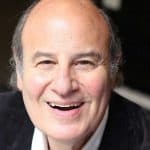by Mark Small
Thanks to the great Spanish classical guitarist Andrés Segovia establishing college and conservatory guitar education throughout the world, today’s young players can choose from a range of music schools and conservatories with fine guitar performance programs. People of earlier generations did not have so many good options.
It’s common now for high school students seeking a college music degree to have started out on classical guitar with a teacher. There are, however, many who were self-taught on electric or acoustic guitar before coming to classical guitar.
In either case, to continue to grow, it’s essential to understand the mechanics of classical guitar technique and tone production, possess strong music-reading skills, and a feel for the repertoire.
Right Place, Right Person
Key to finding the institution with the guitar department that will benefit you most is to identify a school that has a guitar teacher that will best serve you.
Do an honest self-evaluation and get feedback from qualified people to understand what you need to further your development. As you research colleges, learn whether a prospective teacher excels in helping students build technique and overcome deficiencies, or if he or she is stronger in teaching interpretation and historical insights to the music.
The best teachers can do both, but teaching guitar technique and changing incorrect habits is hard work for both the teacher and student. Find a mentor who will be patient and insistent that you master the fundamentals.
Gaining insights about interpretation and expression are of utmost importance to developing a personal style. A teacher who is an insightful interpreter will be invaluable to you, but make sure the technical groundwork is laid so that you’ll be ready to execute the musical subtleties this teacher will share with you.
Career Path
The majority of classical guitar professionals are solo performers who present recitals and solo with orchestras.
Such a career is a mighty summit to scale and there are lots of fellow climbers. Many young guitarists shooting for a career like that of Julian Bream, David Russell, or Manuel Barrueco, enter guitar competitions.
While there are numerous competitions held annually worldwide, two prestigious contests in the United States have catapulted winners to great careers. One is the Guitar Foundation of America (GFA) competition, which awards the winner $10,000, a 50-city international tour, recording contract, and publishing contract.
The Parkening International Guitar Competition offers $60,000 in prize money ($30k to the first prize winner) and a tremendous résumé boost.
Among the players who launched successful careers after winning these contests are Meng Su (China) , Johannes Moller (Sweden), Pablo Villegas (Spain), and the U.S. winners Martha Masters and Jason Vieaux. Adult competitions (for those 18 to 30 years old) involve incredible work to prepare difficult set pieces to be played from memory before distinguished judges and in the final round, a live audience.
The Noble Art of Teaching
Only a select few artists make a living exclusively from touring and recording; for most, teaching is a big component of their work.
In addition to giving masterclasses at music festivals and colleges, many hold steady posts at leading music institutions. A short list of schools with world renowned teachers are:
- Juilliard – (Sharon Isbin)
- Peabody Conservatory – (Manuel Barrueco, Julian Gray)
- Yale – (Ben Verdery )
- USC Thornton School of Music – (Pepe Romero, Bill Kanengiser, Scott Tennant)
- Curtis Institute – (Jason Vieaux, David Starobin)
- New England Conservatory – (Eliot Fisk)
- San Francisco Conservatory – (David Tannenbaum, Judicael Perroy, Marc Teicholz, Richard Savino)
Other incredible teachers in less conspicuous places include:
- Ricardo Cobo (University of Nevada, Las Vegas)
- Bruce Holzman (Florida State University)
- Stephen Robinson (Stetson University)
- Frederic Hand (Mannes)
- Adam Holzman (University of Texas at Austin)
These are by no means exhaustive lists – there are many other excellent and dedicated teachers out there.
Studio Setting
In the best classical music departments, professors foster camaraderie among the students in their studio.
This is where peer-to-peer learning happens and opportunities to form ensembles arise. The Grammy-winning Los Angeles Guitar Quartet got its start as students in Pepe Romero’s studio at USC in 1980.
In a great studio, students will also learn about other professional pursuits in publishing original compositions or arrangements, or perhaps how to become educators themselves.
Discovering your own path to success in any quarter of the music industry involves having something that makes you stand out from the crowd.
For classical musicians, a burnished technique and a personal style and approach to your instrument and repertoire are the prerequisites. Do your homework to make sure you’re in the best starting position by choosing the right teacher and college to achieve your goals.
Find out how IMS can help you find the right school for you and your future.
Learn More Today
Founder & President at Inside Music Schools | Insidemusicschools.com
Head of admissions and faculty member at Berklee College of Music for 40 years, Steve Lipman and our team at Inside Music Schools speak music as their primary language. We approach each client contact with open eyes, ears, and minds. As the country’s premier music school consultant, he has advised students from the United States, Canada, the U.K., India, Singapore, Dubai, China, Australia, Turkey, Colombia, Argentina, Brazil, Japan, Israel, Italy, Russia and elsewhere.
